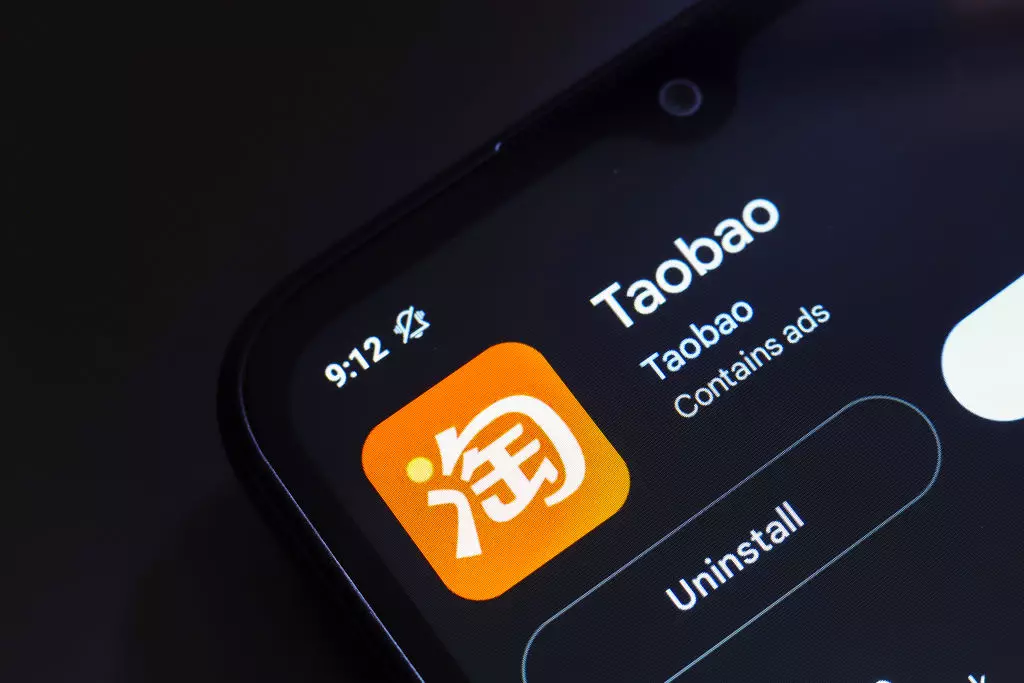In a landscape dominated by established giants, the sudden rise of Chinese e-commerce apps like DHgate and Taobao signifies a seismic shift in consumer behavior. Once relegated to the sidelines, these platforms are now surfacing as preferred destinations for U.S. shoppers, largely as a direct response to political and economic changes. With DHgate recently ascending to the position of the second most popular free app on the U.S. iPhone market, and Taobao dramatically muscling its way into the top five, it’s clear that American consumers are hungry for an alternative to the escalating costs imposed by traditional luxury goods retailers.
This phenomenon is largely fueled by consumer exposure to a wave of TikTok videos in which Chinese manufacturers divulge the behind-the-curtain operations of the luxury goods sector. These videos assert that countless luxury items—ranging from high-fashion garments to iconic handbags—actually originate in China, before being shipped abroad for branding and repackaging. By circumventing these middlemen, U.S. shoppers are beginning to realize that they can access these same products more affordably through apps like DHgate and Taobao.
Disruption Through Direct Access
The decentralized nature of these online marketplaces is reshaping how American consumers think about their shopping habits. Many are now looking beyond mainstream retail giants like Amazon and Walmart, instead searching for direct avenues to purchase high-quality merchandise without the exorbitant markups associated with luxury brands. In recent months, as cost-sensitive consumers grapple with rising prices on established platforms like Shein and Temu, downloading alternatives like Taobao has exploded.
Recent statistics reveal that Taobao’s downloads surged by an astonishing 514% in April alone, jumping from 30,000 to approximately 185,000. The app’s meteoric ascent—from a minor player on the iOS App Store charts to a notable contender in the shopping category—signals a compelling transformation in consumer preferences. Within mere days, Taobao vaulted from position 49 to an impressive rank of 2, outpacing formidable rivals and showcasing its newfound ability to capture consumer attention and loyalty.
The Illusion of Saving?
Despite the promising statistics, it’s crucial to address a significant caveat: U.S. consumers are not escaping the effects of tariffs on Chinese imports by switching their shopping apps. Instead, they are lured by the allure of getting goods at a more palatable price point, causing many to conflate the act of buying directly from manufacturers with actual savings. This mindset reflects an evolving consciousness around perceived value—consumers are drawn to the idea of accessing the same products at reduced prices, even if the financial reality doesn’t fully match their expectations.
Moreover, the race towards inexpensive alternatives comes with its own set of risks. The notion of “buyer beware” looms large over these e-commerce platforms, where the quality of products can vary widely based on the seller. The importance of scrutinizing individual seller reviews and gathering insights from previous buyers cannot be overstated. While some may find genuine treasures, others could encounter disappointing products that do not live up to their expectations. This reality could lead to a disillusionment that peels away layers of what initially seemed appealing about these applications.
A Cultural Shift in Shopping Habits
What is perhaps most notable about this e-commerce evolution is not merely the drastic uptick in downloads but the cultural and psychological implications at play. American shoppers are beginning to embrace a more global mindset, with the barriers that once kept Chinese goods out of reach slowly eroding. Pairing practical savings with a sense of adventure in sourcing products encourages the exploration of international markets that were once thought to be niche or inaccessible.
With the raging success of TikTok’s influence and the power of social media, we are witnessing a modern-day marketplace where information flows freely and empowers consumers. Consequently, the rise of apps like DHgate and Taobao represents not just a shift in shopping habits, but a broader transformation in how we acquire and perceive value in our everyday lives. This evolving narrative not only empowers consumers but also holds the potential for reshaping the economic landscape of shopping both at home and abroad.

